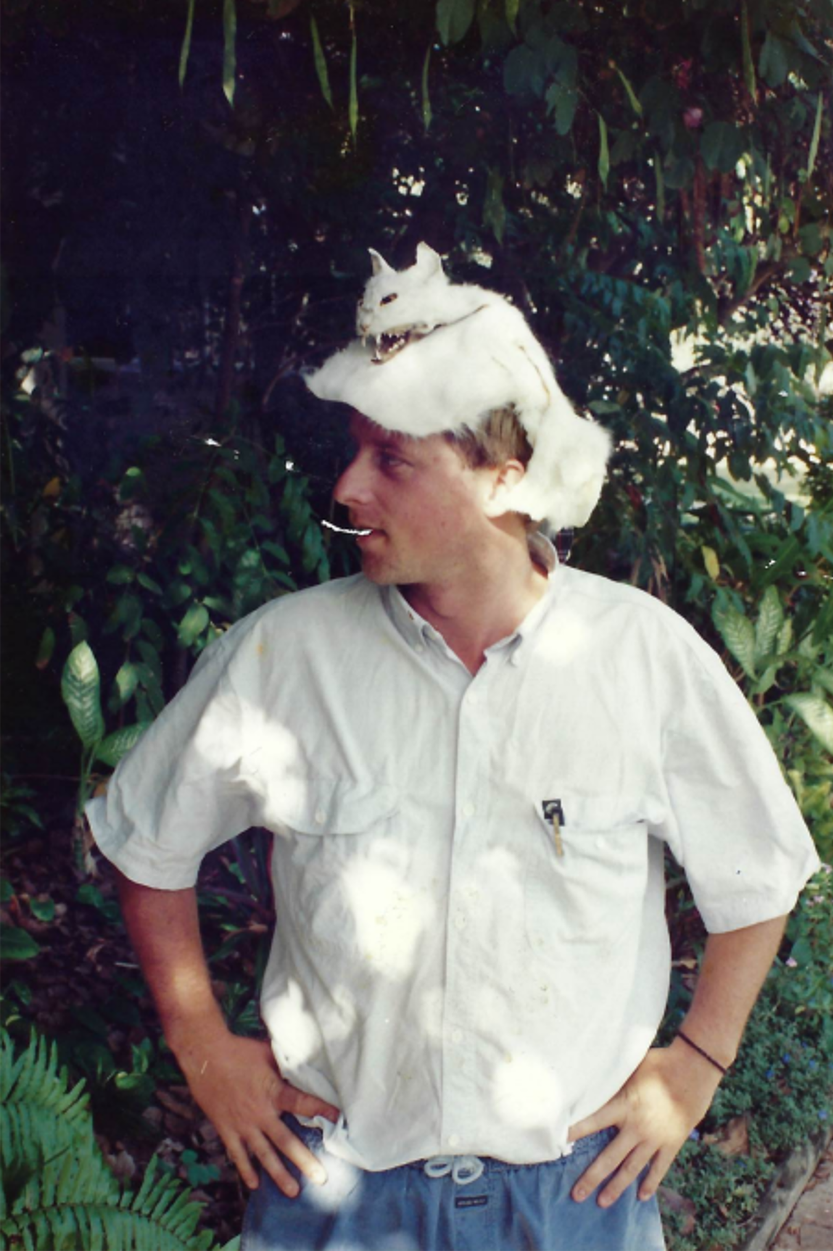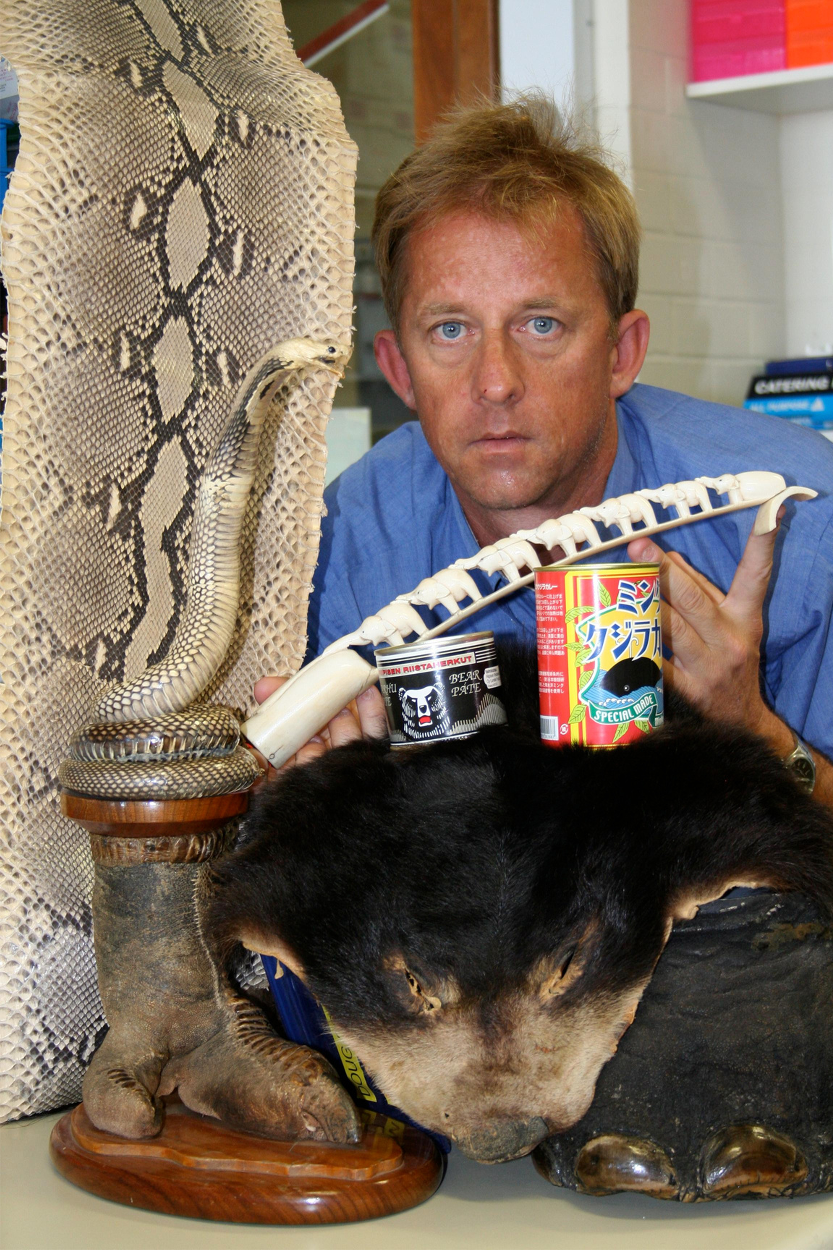Vale Pete Spencer
Jordan O. Hampton A *
A *
A
On 11 March 2024, we lost a great man in Australian wildlife research with the passing of Pete Spencer. Pete had many close friends and colleagues who were shocked and saddened to lose him. He passed away peacefully in his sleep, but died too young. The best wishes of the whole wildlife biology community go out to Pete’s wife Andrea and his daughters, Luisa and Sophie.
Peter Bradley Skottowe Spencer will be remembered widely for his pioneering work in the application of molecular ecology to conservation. Pete was instrumental in the growth of population genetics in wildlife research and its application in Australia. His research has aided the conservation of threatened and protected fauna in Australia, Asia and beyond. His work is of considerable management significance, especially to threatened island fauna and introduced species. Pete was a great collaborator, working with various Australian museums, zoos, government departments and non-government agencies and employing his easy-going personality, intellect and modern genetic techniques to influence effective conservation research and management outcomes.
Pete completed his Bachelor of Science in Marine Biology and Tropical Zoology at James Cook University in Queensland, where he went on to complete a PhD in molecular ecology and marsupial ecology. His PhD was supervised by Professor Helene Marsh and his thesis was titled: ‘Coping with a naturally fragmented environment: a genetic and ecological study of the allied rock-wallaby, Petrogale assimilis’. Pete’s mischievous and adventurous spirit as a young man led to him being well-known and well-liked – many colleagues still remember his ‘feral cat hat’ that he wore on occasions (Fig. 1). His first post-doc position took him to Germany, to the University of Gottingen, where he focused on ancient DNA, microsatellite development, forensic identification and extinct species (and met his wife Andrea). Pete then moved to Perth in Western Australia where he was to stay.
He worked for a time as conservation geneticist at Perth Zoo, and then moved to Murdoch University. Pete was an important member of Murdoch University staff over the next 25 years. He undertook research and teaching there, with his work spanning conservation genetics, invasive species biology and wildlife forensics (Fig. 2). He was adaptable with technological changes, and saw many waves of new techniques arrive in his time working in genetics. His years as a lecturer and researcher culminated in his well-deserved appointment as Dean of the School of Environmental and Conservation Sciences at Murdoch University in 2023.
Pete left a lasting impression on the trajectory of wildlife research in the southern hemisphere. He was a prolific author and mentored countless students. He made a huge contribution to many professional societies in the wildlife research space, including the Australian Mammal Society and the Australasian Wildlife Management Society. Pete was the first scientist in Australasia to apply the tools of population genetics that had been developed for threatened species recovery to the management of introduced (invasive) species. His research on feral pigs was pioneering and influenced several decades of subsequent developments. Pete then expanded his research into other Australian invasive species such as feral cats and feral dromedary camels.
Pete was not the type of polished and politically correct figure that many may expect from a man having spent half a lifetime in academia. He was something special. He was a rascal, a prankster, a larrikin. He had that rarest combination of sharp intellect, humility and good humour. He put others at ease, was a patient mentor, and made even the most mundane of tasks enjoyable. He was honest, and Pete did not suffer fools, but he was an incredibly generous friend to those close to him. Never one to be confined to a lab, Pete felt at home in the bush and frequently got involved in field work, particularly animal trapping. Anyone who has undertaken field work with Pete will not forget it. He was genuinely selfless, and leaves behind a diverse group of colleagues who are indebted to the generous life he lived. In the words of Pete’s long-time colleague, Mike Calver, he was ‘the least pretentious of men’. As a colleague, as a mentor, and as a mate, he will be missed.




